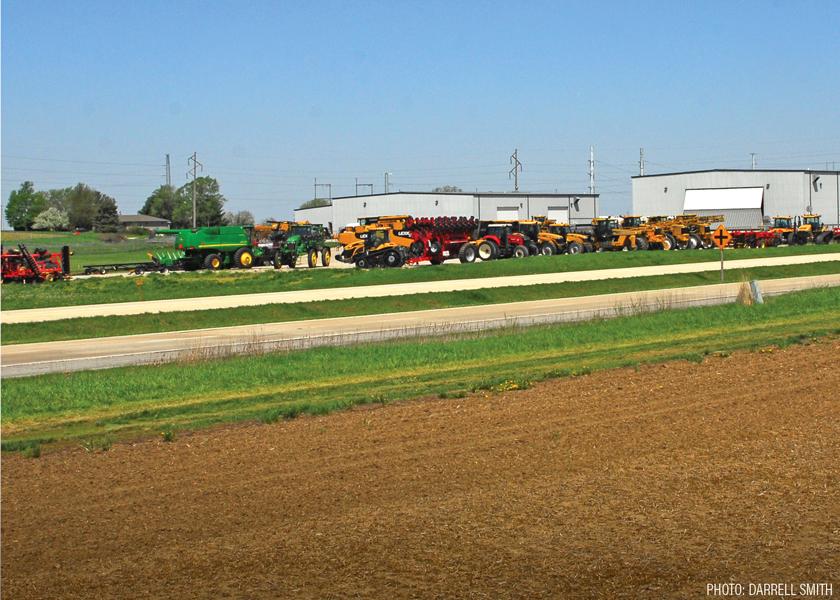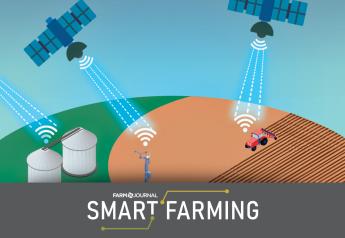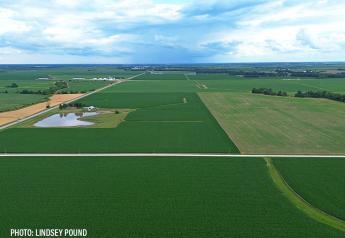Trading With Traders: Machinery Jockeys Share Lessons To Tackle The Equipment Market

Shortages of new farm equipment due to supply line delays have brought the machine locating, trading and transporting skills of “machinery jockeys” into the spotlight. Whether they sell equipment via auction or act as an intermediary for private sales, machinery wholesalers offer options.
“We see everything from good, used equipment from dealerships to machinery that’s ready to be scrapped,” says Jordan Clarke, with Ritchie Bros. Auctioneers. “When we work with dealerships, it’s not necessarily the junk off the back of their lot. A lot of times they just want to move their good, used equipment to keep their money flowing.”
Clarke and other machinery traders offer these suggestions to help farmers find the best deal.
- Don’t believe everything on the internet, but pay attention to what people say on the internet.
“Google a company and see what people say about them on social media,” says Kevin Wieman, with Wieman Land and Auction in South Dakota. “There will always be a few sour grapes, but in general, you can get a sense for the ethics of a business by what people say on the internet.”
- Work with the machinery trader to gather information on the machine. Take the serial number of tractors, combines and self-propelled sprayers to a local dealership and check their service history.
“If a machine is less than 10 years old, you can probably get its full pedigree,” Wieman says. “That includes where it was first sold, who owned it second, factory updates and repairs.”
- Consider paying for an independent appraisal. Most machinery traders can arrange for an independent mechanic or dealership mechanic to inspect a machine. Figure on paying from $25 to $2,500 for an inspection, depending whether the machine is a tillage tool, tractor or combine.
“Ritchie Brothers has an IronClad inspection program through our IronPlanet,” Clarke says, “where we inspect a machine, take pictures, shoot videos and compile the maintenance and repair history so buyers can get an idea of what the machine is like, without having to travel to see it. We try to represent each machine as accurately as possible. If everybody does their job, from the seller to the broker to the buyer, there shouldn’t be any post-sale issues.”
- Check the nooks and crannies. If you travel to personally inspect a machine on a trader’s lot, take along a flashlight and some wrenches. Dig deep. On combines, look under the shoe augers and deep under the shields for leftover wheat, soybeans, rice or corn. Check what type of concave the machine has because a rice concave is different from a wheat concave which is different from corn and soybean concave.
“Look at the color of the dirt on a machine — black gumbo or red dirt suggests where the machine came from and maybe how it was used,” Wieman says.
- Understand the payment and delivery process. Agree in advance if the transaction will be cash, check, credit card or wire transfer. Auction companies work frequently with heavy equipment trucking companies who not only have specialized insurance for heavy hauling, but are familiar with oversize load regulations by state. Understand the personal liabilities and risks of borrowing a buddy’s gooseneck trailer to haul home to Illinois an overwidth, overheight tillage tool from an auction lot in Nebraska.
- Understand sales tax subtleties. “South Dakota has sales tax on farm equipment,” Wieman says. “Some states don’t. We have to collect sales tax on every sale, but we can refund that South Dakota sales tax if your state doesn’t have a sales tax on farm equipment and if the point of delivery is in your state. If you come here to pick it up and haul it home, then you’ve taken delivery in South Dakota, and you pay the South Dakota tax. A good auction company or machinery trader can help you figure out your transaction.”
- Don’t expect bargains. Supply chain shortages limiting the availability of OEM equipment have fueled sales of used equipment, and the internet has made machinery trading into an international enterprise. “The internet has leveled the playing field,” Wieman says. “Everybody can compare machines and prices with a couple clicks of their mouse. So asking and sale prices for good used equipment are pretty uniform across the U.S. and Canada. In today’s used equipment market, if you find a smoking hot deal, be suspicious.” FJ
Dan Anderson uses his hands-on experience with farm machinery repairs, field operations and technology to share practical tricks and fixes.







